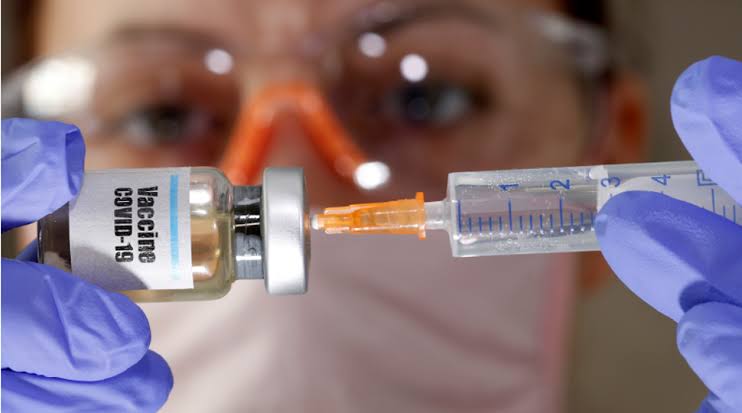Coronavirus
8 Possible Covid19 Vaccines Enter Final Stage.

There is hope for a Covid-19 vaccine with eight out of 100 worldwide projects going into clinical trial stage this week, with health experts however concerned by whether when finally approved, there will be enough for the whole world.
James Zhan, director of investment and enterprise at the United Nations Conference on Trade and Development (UNCTAD) said the eight met the required standards and will be evaluated and results announced in the next few months.
He said this in his opening remarks of a virtual meeting organised by the World Health Organisation on Wednedsay. He added demand for a Covid-19 vaccine is likely to surpass the supply hence the need to invest more in pharmaceutical development to meet the demand.
Vira celector
“Once a vaccine for Covid-19 is available, the massive demand is likely to outstrip supply quickly and if the pharmaceutical industry cannot keep up with demand, populations in poor countries will be the ones left behind,” said the director.
Pharmaceutical companies around the world have been working on developing a Covid-19 vaccine with the latest being US-based giant Merck. On Thursday, the company said it will start making two vaccines and a much-discussed experimental anti-viral compound that is in its early clinical trial.
Merck’s vaccine will focus on replicating the viral vector.
There is also a study in Wuhan, China, by Chinese drug maker, CanSino Biologics, which has been found safe and induces rapid immune response.
The findings were published last week, days after an American biotechnology company, Moderna, announced that it had also developed a vaccine that has been found to be safe and able to stimulate an immune response in the human body against the virus.
Vaccine production is currently concentrated in a few developed countries, in the hands of a few major players. According to the WHO, nearly one third (32 per cent) of vaccines have fewer than four suppliers, while nearly two thirds (63 per cent) have two or fewer prequalified products.
“Covid-19 has shown just how vulnerable medical product supply chains are when relying on a small number of manufacturers for raw materials and final products,” said WHO regulation and prequalification director Emer Cooke.
According to UNCTAD and the WHO, many developing countries need help to build their capacity to produce essential medical products, whether they are vaccines, antibiotics or personal protective equipment.
Those that have so far succeeded in establishing a local pharmaceutical industry capable of complying with international quality standards are mostly middle-income and low middle-income countries in Asia such as India and Thailand.
Lagging behind
Productive capacity has remained largely untapped in Africa, where the majority of the least developed countries are located.
Of the 40 vaccine manufacturers in 14 nations only one is African; the Biovac Institute based in Cape Town, South Africa, which currently delivers over 25 million doses of vaccines each year for illness such as measles, polio and TB.
UNCTAD cited East Africa as a region which is lagging behind in production of local pharmaceutical and together with WHO have initiated a three-year project in the region to boost production of basic antibiotics.
The $490,000 Antimicrobial Resistance (AMR) project launched a month ago to will induce investment policies, including regional medicines procurement, in the region and select countries will ensure the availability of essential antibiotics at national and regional levels.
The 2020-2013 project being implemented in Kenya, Uganda and Ethiopia is expected to boost investment incentives and public health demands for the production and supply of antimicrobials at the required quality, safety and efficacy.
EAC-based producers currently use less than 50 per cent of their capacity, due to Covid-19 related restrictions and shortages in essential active pharmaceutical ingredients.
[The EastAfrican]
Kenya Insights allows guest blogging, if you want to be published on Kenya’s most authoritative and accurate blog, have an expose, news TIPS, story angles, human interest stories, drop us an email on [email protected] or via Telegram
-

 Investigations2 weeks ago
Investigations2 weeks agoBillions Stolen, Millions Laundered: How Minnesota’s COVID Fraud Exposed Cracks in Somali Remittance Networks
-

 News2 weeks ago
News2 weeks agoUS Moves to Seize Luxury Kenya Properties in Sh39 Billion Covid Fraud Scandal
-

 Investigations2 weeks ago
Investigations2 weeks agoJulius Mwale Throws Contractor Under the Bus in Court Amid Mounting Pressure From Indebted Partners
-

 News2 weeks ago
News2 weeks agoMAINGA CLINGS TO POWER: Kenya Railways Boss Defies Tenure Expiry Amid Corruption Storm and Court Battles
-

 Business4 days ago
Business4 days agoEastleigh Businessman Accused of Sh296 Million Theft, Money Laundering Scandal
-

 Business3 days ago
Business3 days agoMost Safaricom Customers Feel They’re Being Conned By Their Billing System
-

 Americas2 weeks ago
Americas2 weeks agoUS Govt Audits Cases Of Somali US Citizens For Potential Denaturalization
-

 Business4 days ago
Business4 days agoEXPLOSIVE: BBS Mall Owner Wants Gachagua Reprimanded After Linking Him To Money Laundering, Minnesota Fraud
















